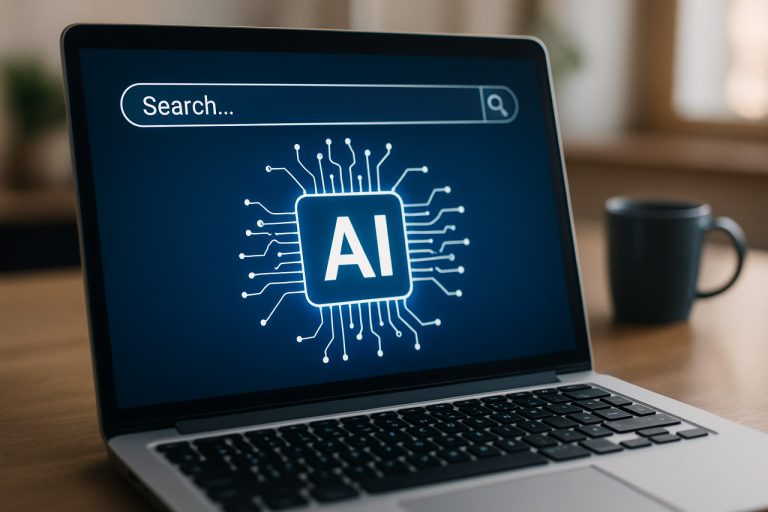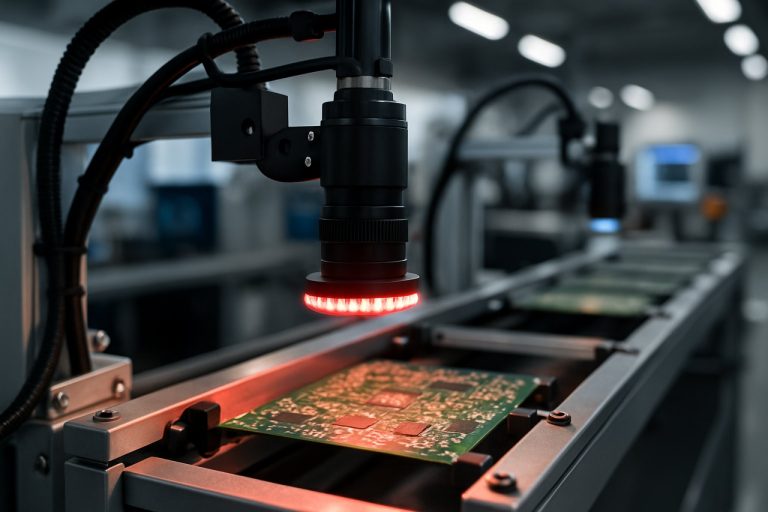
- AI is transforming daily life by seamlessly integrating into homes, providing comfort through smart devices, and enhancing culinary experiences with intelligent kitchen appliances.
- Electric vehicles with advanced AI systems contribute to sustainable urban living by improving safety, reducing traffic, and minimizing environmental impact.
- AI revolutionizes shopping experiences through personalized recommendations, anticipating consumer needs and preferences on online platforms.
- In healthcare, AI enhances diagnostic accuracy and speed, while virtual assistants offer personalized health advice, potentially saving lives.
- Machine learning models evolve through data exchanges, making AI an intuitive companion that grows alongside users.
- Ethical considerations and data privacy are essential as AI advances, requiring transparency and trust in AI interactions.
- AI enhances, not replaces, humanity by turning future aspirations into present realities with thoughtful embrace and innovation.
As dawn spills its golden hues over the urban landscape, a silent revolution is unfolding—one that promises to redefine the very fabric of everyday life. The unassuming protagonist in this transformative tale? Artificial intelligence, stealthily weaving its way into the mundane to the extraordinary.
Walk into a typical modern home, and AI is there to greet you, interpreting voice commands to adjust lighting or thermostats for optimal comfort. In kitchens, AI-driven appliances boast culinary wisdom, turning novice cooks into adept chefs with personalized recipe suggestions based on what’s left in the fridge.
Step outside, and the hum of electric vehicles equipped with intelligent systems paints a picture of tomorrow’s streetscapes. These self-navigating marvels employ complex algorithms to ensure safety, reduce traffic, and minimize environmental impact, advancing the vision of sustainable urban living.
Shopping experiences, too, have pivoted into the future with the seamless integration of AI. Online platforms leverage advanced recommendation engines, analyzing shopping habits to offer curated experiences, often anticipating desires before consumers themselves recognize them.
In healthcare, AI assists in diagnostics, offering a second set of ‘eyes’ that enhance precision and speed in detecting diseases, potentially saving lives with its predictive prowess. AI-driven virtual assistants also offer personalized health advice, helping individuals maintain wellness.
Yet, the heart of this revolution beats strongest among dynamic data exchanges that fuel machine learning models. These models evolve from user interactions to become more intuitive, making artificial intelligence not just a tool of convenience, but a steadfast companion that learns and grows alongside humanity.
This technological evolution isn’t just about convenience; it’s pushing boundaries and challenging preconceived notions of what is possible. As ethical considerations and data privacy debates rise alongside AI advancements, the need for transparency becomes paramount. Trust must be the backbone of every AI interaction, ensuring users feel empowered and secure.
Ultimately, the relentless march of artificial intelligence manifests as a presence that’s both powerful and invisible, a gentle yet insistent reminder of change. As society adapts to these ubiquitous innovations, the pivotal takeaway remains clear: embracing AI thoughtfully can unlock unparalleled potential, turning tomorrow’s aspirations into today’s realities.
The quiet revolution of AI is not about replacing our humanity, but rather about enhancing it, ensuring each step forward is guided by wisdom as much as innovation.
Unlocking the Potential of AI: The Silent Revolution Transforming Our Lives
The AI Revolution: Embracing a Smarter Future
Artificial intelligence (AI) is quietly revolutionizing various aspects of our daily lives, seamlessly integrating into everything from home automation to healthcare. This technological advancement is more than just about convenience; it’s reshaping how we interact with the world, offering unlimited potential when approached thoughtfully and ethically. Here’s a deeper dive into the multifaceted role of AI and what it means for our future.
Real-World Use Cases and Benefits of AI
1. Smart Homes and Personalization:
– AI-powered virtual assistants such as Amazon Alexa or Google Assistant can control smart devices, offering voice-command-driven convenience for adjusting lighting, thermostats, and security settings.
– These systems learn user preferences over time, providing personalized recommendations for entertainment, shopping, and even recipes based on the contents of your refrigerator.
2. Autonomous Vehicles and Transport Efficiency:
– Self-driving cars equipped with AI navigation systems use advanced algorithms to enhance road safety, reduce traffic congestion, and lower environmental impacts through efficient route planning.
– Companies like Tesla and Waymo are at the forefront, continually improving AI capabilities to bring fully autonomous vehicles to mainstream markets.
3. Shopping and Retail Evolution:
– AI’s recommendation algorithms on platforms like Amazon and Netflix analyze consumer behavior to offer tailored shopping experiences.
– This personalization helps customers discover products they might not have actively searched for, enhancing satisfaction and increasing sales.
4. Healthcare Diagnosis and Patient Care:
– AI assists doctors in diagnostics, using machine learning models to interpret medical images and predict health risks with high accuracy, thereby improving patient outcomes.
– AI-driven health apps and wearable devices offer individuals customized health insights, promoting proactive wellness management.
Addressing Concerns: Privacy, Ethics, and Trust
– Data Privacy: As AI requires vast amounts of data to learn and evolve, ensuring data security and user privacy is crucial. Regulations like GDPR emphasize transparency and user consent, which companies must adhere to.
– Ethical Use: There is ongoing debate on AI ethics, especially regarding decision-making algorithms and their potential biases. Continuous monitoring and adjustments are necessary to maintain fairness and accountability.
– Building Trust: Transparency in AI processes and operations is vital to building user trust. Clear communication about how AI works and the data it uses can help alleviate concerns.
Market Forecast and Industry Trends
– The global AI market is experiencing rapid growth, with projections indicating it could reach up to $190 billion by 2025 (Statista).
– Burgeoning fields like AI in cybersecurity, finance, and robotics are set to disrupt traditional industries, creating new opportunities and challenges.
Actionable Tips for Adopting AI Technology
1. Start Small: Begin integrating AI into daily life with simple devices or applications, such as a smart speaker or a health-tracking app.
2. Stay Informed: Keep up with technological advancements and ethical discussions surrounding AI. Knowledge empowers responsible usage.
3. Evaluate Privacy Settings: Regularly review privacy settings on devices and applications to ensure your data is protected.
Conclusion
AI’s integration into our lives symbolizes a progressive shift towards intelligent systems that enhance, rather than replace, human potential. By harnessing AI responsibly, we can unlock unparalleled opportunities and improve quality of life across multiple dimensions. For further understanding and updates on AI advancements, visit platforms like IBM and Microsoft.



